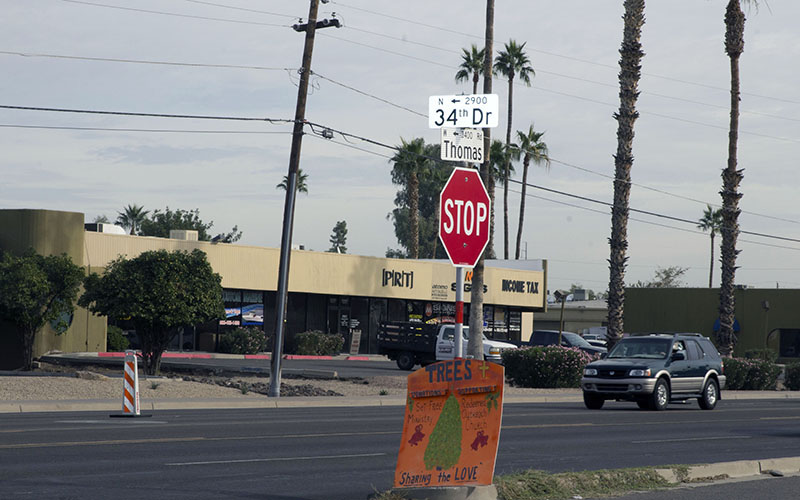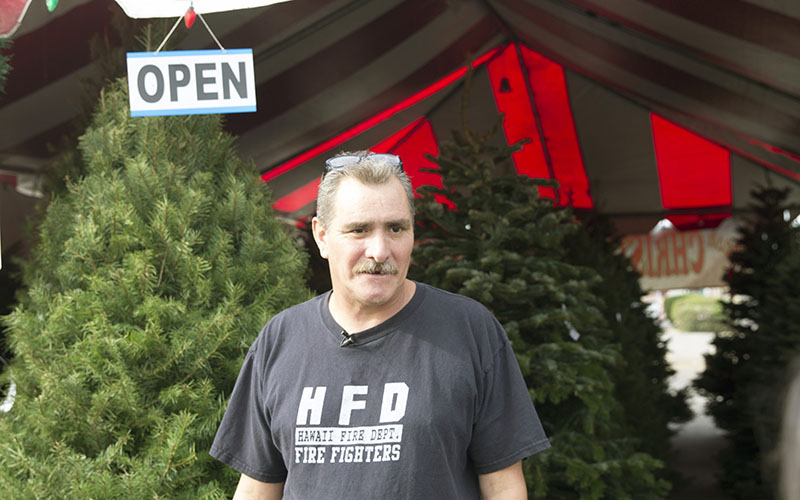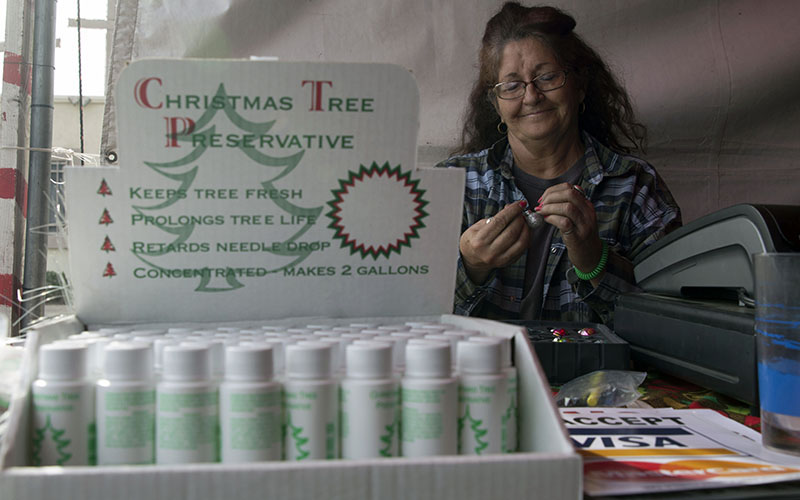
The Arizona locations could see a 2,000-tree shortage during the holiday season. (Photo by Alyssa Williams/Cronkite News)

The decorations are donated by members of the church where the tree lot is located. (Photo by Alyssa Williams/Cronkite News)

One of the Arizona Valley View locations is on 34th Drive and Thomas Road in Phoenix. (Photo by Alyssa Williams/Cronkite News)

Jerry Savocchio, a tree seller, anticipates a shortage of trees near Christmas. (Photo by Alyssa Williams/Cronkite News)

A volunteer for Arizona Valley View decorates a Christmas tree on display. (Photo by Alyssa Williams/Cronkite News)

The Arizona Valley View Christmas Tree Lot location on 34th Drive and Thomas Road in Phoenix is decorated with donated Christmas decorations. (Photo by Alyssa Williams/Cronkite News)

Volunteers work to decorate the location in time for the holidays. (Photo by Alyssa Williams/Cronkite News)

A volunteer threads ornament wire through a a Christmas bulb to decorate the lot. (Photo by Alyssa Williams/Cronkite News)
PHOENIX — Arizona’s current Christmas tree shortage began 10 years ago when the recession hit.
“I’m expecting that we’ll run out of trees early this year,” said Mel Cooper, owner of Arizona Valley View Christmas Tree Lots.
Christmas tree production was at a peak in the winter of 2007, which was right at the start of what came to be known as the Great Recession.
The demand for trees shrank and growers were left with lots full of extra trees.
In response, Cooper said growers cut the trees and burned them so they wouldn’t have to put in more money toward the maintenance of the trees.
Growers nationwide, not knowing if the market would ever pick up again, decided to stop growing, he said.
“The industry went from 800 growers to 400 growers,” Cooper said.
Now, 10 years later, all of the major growers in the northwest are sold out of Christmas trees, Cooper said.
“There’s a worsening shortage and the workers cannot meet the demands,” Cooper said.
He said there are 6.5 million trees being produced for a seven-million-tree market.
Cooper said his company alone will be 5,000 trees short this year. To make up for this shortage he plans to visit small growers to choose trees from their lot, which will then be transferred to his retailers in Arizona and California.
The location at 34th Drive and Thomas Road is preparing for the setback. Tree seller Jerry Savocchio said in the last two weeks of the season they expect a huge shortage in trees.
“So if I were a buyer I would want to come early this year and get your tree,” Savocchio said. “Not wait until the last minute because there would be a big shortage, in the thousands.”
But the shortage isn’t expected to last too long.
“The production will come back but it’s going to take a few more years,” Cooper said. The average Christmas tree take six to 10 years to grow.
Cooper said the market is at an all-time high since sales have increased 25 percent since last year.
Growers will see the interest again and begin cultivating their land so wholesalers will buy off them in the coming years, Cooper said.